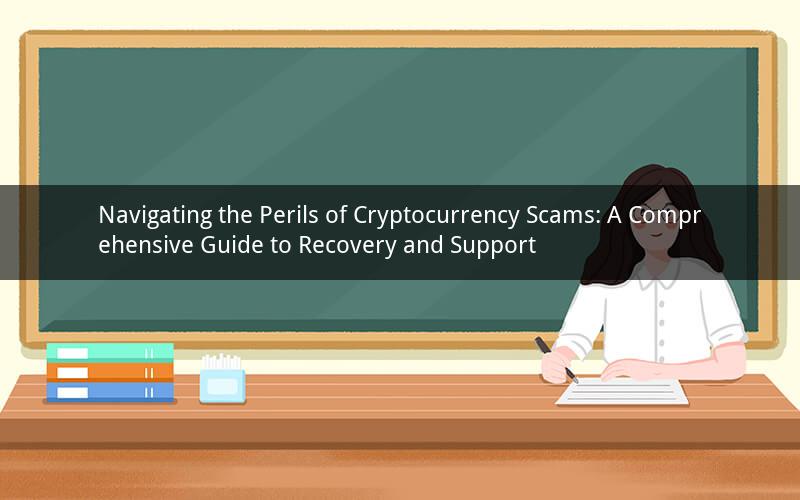
In recent years, cryptocurrencies have gained immense popularity, attracting both seasoned investors and newcomers alike. However, with the rise of digital currencies, so too has the prevalence of scams targeting unsuspecting individuals. If you find yourself a victim of cryptocurrency asset scams, it's crucial to seek help and take appropriate measures to protect yourself. This article delves into the intricacies of identifying scams, the steps to take after being scammed, and the available resources for support.
Understanding Cryptocurrency Scams
Cryptocurrency scams can take various forms, including Ponzi schemes, phishing attacks, and fake exchanges. It's essential to recognize the signs of a potential scam to avoid falling victim to these fraudulent activities. Here are some common red flags:
1. Unbelievable Returns: Be wary of investment opportunities promising exorbitant returns with little to no risk. High-interest rates are often a sign of a Ponzi scheme.
2. Pressure to Act Quickly: Scammers often use urgency to manipulate victims into making impulsive decisions without conducting proper research.
3. Lack of Transparency: Be cautious of platforms or projects that do not provide clear information about their team, technology, or business model.
4. Unusual Payment Methods: Scammers may demand payments via cryptocurrencies or wire transfers, making it difficult to trace the transaction.
5. Unverified Testimonials: Be skeptical of platforms or projects that use fake testimonials or celebrity endorsements to lure in unsuspecting individuals.
What to Do After Being Scammed
If you've been scammed out of your cryptocurrency assets, it's important to act quickly and seek help. Here's a step-by-step guide to help you navigate the aftermath of a scam:
1. Report the Scam: Inform the relevant authorities about the scam, such as your local law enforcement agency, the Financial Crimes Enforcement Network (FinCEN), and the cryptocurrency exchange where the scam occurred.
2. Secure Your Accounts: Change your passwords and enable two-factor authentication on all your financial accounts to prevent further unauthorized access.
3. Freeze Your Assets: If you have any remaining assets, consider freezing them to prevent the scammers from accessing them.
4. Document Everything: Keep a detailed record of all communications with the scammers, as well as any evidence of the scam, such as emails, chat logs, or screenshots.
5. Seek Professional Advice: Consult with a lawyer specializing in cybersecurity or fraud to understand your legal options and the potential for recovering your assets.
Available Resources for Support
Navigating the aftermath of a cryptocurrency scam can be overwhelming. Here are some resources that can help you seek support and guidance:
1. Cryptocurrency Exchange Support: Contact the cryptocurrency exchange where you lost your assets to report the scam and inquire about their fraud recovery process.
2. Cybersecurity Resources: The Federal Trade Commission (FTC) and the National Cybersecurity Alliance provide valuable resources to help you protect yourself against scams and fraud.
3. Legal Aid: If you require legal assistance, consider contacting a lawyer specializing in cybersecurity or fraud to understand your options and the potential for recovering your assets.
4. Support Groups: Joining online forums or support groups can provide emotional support and practical advice from others who have experienced similar situations.
5. Financial Counseling: A financial counselor can help you develop a plan to recover from the financial impact of the scam and provide guidance on preventing future scams.
Frequently Asked Questions (FAQs)
1. Q: Can I recover my cryptocurrency assets after being scammed?
A: Recovery is possible, but it's not guaranteed. The likelihood of recovering your assets depends on the nature of the scam and the actions you take after falling victim to it.
2. Q: Should I report the scam to the authorities even if I don't expect to recover my assets?
A: Yes, reporting the scam is crucial as it helps authorities identify patterns and prevent similar scams from affecting others.
3. Q: How can I prevent myself from falling victim to cryptocurrency scams in the future?
A: Conduct thorough research on investment opportunities, be cautious of unrealistic returns or pressure to act quickly, and stay informed about the latest scams and security best practices.
4. Q: What should I do if I receive a suspicious email or message related to my cryptocurrency assets?
A: Do not respond to the email or message, delete it immediately, and report it to the relevant authorities.
5. Q: Can I seek legal action against the scammers?
A: It's possible to seek legal action against scammers, but the success of such actions depends on various factors, including the jurisdiction and the availability of evidence. Consult with a lawyer to understand your options.
In conclusion, falling victim to a cryptocurrency scam can be a devastating experience. However, by understanding the signs of scams, taking appropriate actions after being scammed, and seeking support from available resources, you can navigate the challenges of recovery and protect yourself from future scams. Remember, education and vigilance are key to safeguarding your cryptocurrency assets.